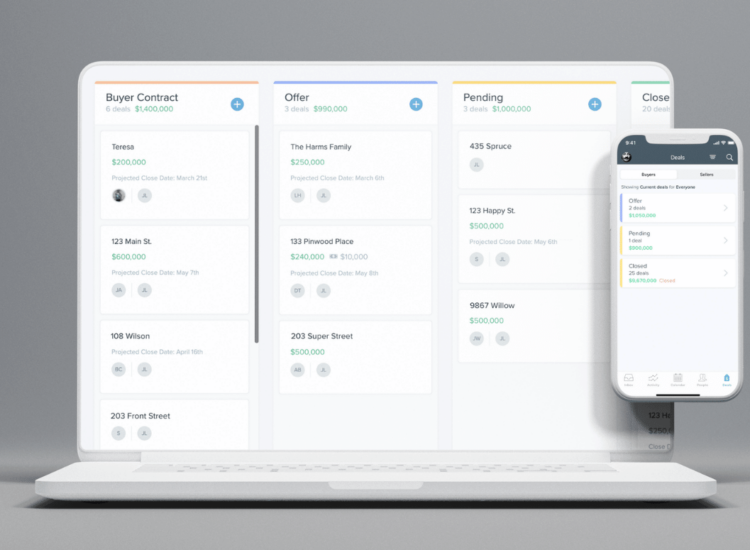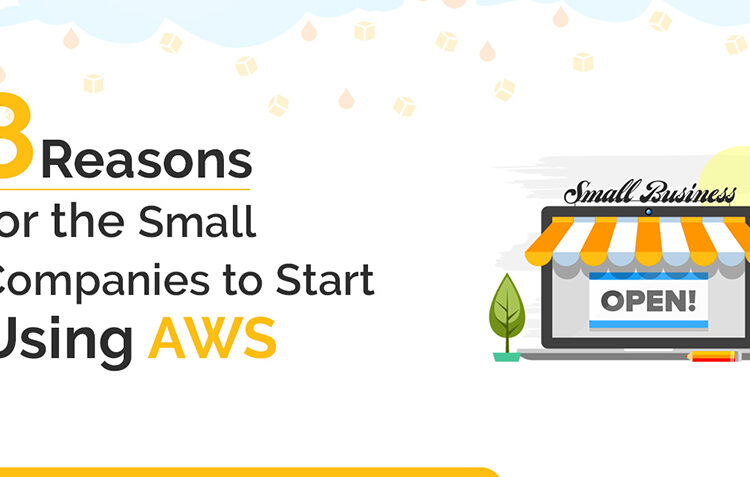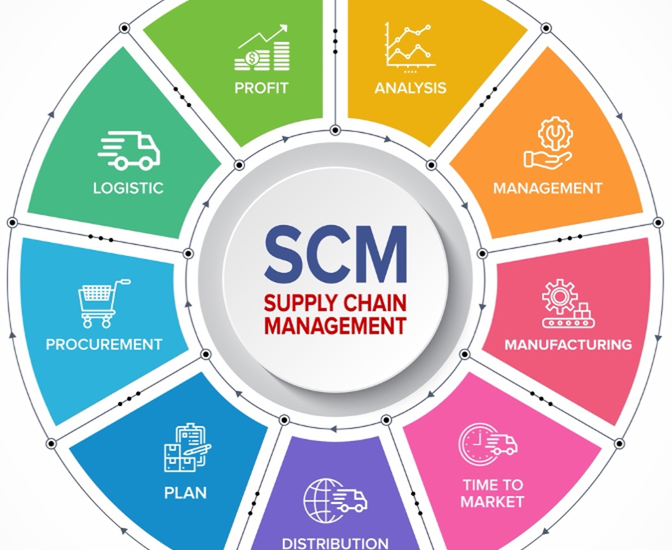Operating a Shopify store can be a complex endeavor, especially when it comes to managing customer interactions and data effectively. Without a dedicated CRM, store owners may find themselves overwhelmed, struggling to juggle customer inquiries, track sales, and understand customer behavior. This is where the best CRM for Shopify comes into play, offering powerful tools to streamline operations and enhance customer relationships.
Toc
In this article, we will guide Shopify store owners through the process of selecting the most suitable CRM for their business needs. We’ll explore the benefits of using a CRM for your Shopify store, key features to consider, and the top CRM options available. Additionally, we’ll provide tips for choosing the right CRM and implementing it effectively to enhance your ecommerce success.
Why Choose a CRM for Your Shopify Store?

Operating a Shopify store presents numerous challenges, particularly when it comes to managing customer interactions and data. A robust CRM can be instrumental in overcoming these challenges and driving growth. Here’s how the best CRM for Shopify can help:
Centralized Customer Data
A CRM serves as a single source of truth for all customer information, including purchase history, contact details, and interaction logs. This centralization allows for more personalized customer interactions. A CRM can segment your customer base based on various factors like purchase history, demographics, and engagement levels. This allows for targeted marketing campaigns, personalized product recommendations, and tailored customer service interactions. For example, you can create a segment of “Loyal Customers” who have made repeat purchases and send them exclusive offers or early access to new products.
Personalized Interactions
By leveraging customer data effectively, you can tailor your communication and marketing strategies to meet the unique needs of each individual, ensuring that your messaging resonates with your audience. This personalization fosters a deeper connection, as customers feel valued and understood. For example, using previous purchase history or browsing behavior allows you to create targeted promotions and content that speak directly to their interests.
Automated Tasks
Automating repetitive tasks such as follow-up emails, abandoned cart reminders, and customer segmentation can save significant time and enhance overall efficiency. Imagine a scenario where a customer abandons their cart; a well-integrated CRM can automatically send a reminder email complete with a personalized discount code, gently nudging them to complete their purchase. This level of automation not only saves you precious hours on manual tasks but also boosts conversion rates by keeping your brand top-of-mind when it matters most.
Enhanced Customer Experience
A CRM system enables you to provide a more tailored customer experience by offering relevant product recommendations based on past interactions and proactive support to address potential issues before they escalate. This proactive approach not only strengthens customer loyalty but also enhances the overall satisfaction your clients feel when engaging with your brand, ultimately leading to higher retention rates.
Data-Driven Insights
Access to advanced analytics and robust reporting tools allows you to track customer behavior meticulously, identify emerging sales trends, and measure the performance of your marketing campaigns with precision. With these insights, you can make informed decisions that drive your business forward, adapting strategies based on real data rather than guesswork. This level of insight is crucial for scaling your operations effectively and ensuring sustainable growth.
Investing in the best CRM for Shopify is essential for nurturing customer relationships, boosting sales, and gaining actionable insights as your business scales. A powerful CRM not only streamlines your processes but also empowers you to create meaningful connections with your customers, setting the stage for long-term success.
Key Features to Look for in the Best CRM for Shopify

When searching for the best CRM for Shopify, consider the following essential features:
Seamless Shopify Integration
Ensure that the CRM integrates seamlessly with your Shopify store, allowing for real-time data synchronization. This integration is crucial for effortless management and up-to-date customer information.
Robust Customer Data Management
A good CRM should offer comprehensive contact management capabilities, including detailed customer profiles, custom fields, and data enrichment features. This will help you maintain accurate and organized customer records.
Powerful Marketing Automation
Look for a CRM that provides robust marketing automation tools, such as email marketing, abandoned cart recovery, automated follow-ups, and multi-channel communication capabilities. These features can significantly enhance your marketing efforts.
1. https://cafekinhdoanh.net/mmoga-the-best-crm-for-mortgage-brokers-boost-efficiency-close-more-deals
3. https://cafekinhdoanh.net/mmoga-what-is-the-best-crm-for-small-businesses
Advanced Analytics and Reporting
Choose a CRM with comprehensive reporting and analytics tools to gain insights into customer behavior, sales trends, and campaign performance. This information can guide your marketing strategies and help optimize your operations.
User-Friendly Interface
A user-friendly interface is critical for ensuring that your team can easily navigate and utilize the CRM. Prioritize platforms that offer intuitive design and straightforward navigation.
Scalability and Flexibility
Select a CRM that can grow with your business, offering options for adding users, customizing workflows, and integrating with other tools. This flexibility is essential for adapting to changing business needs.
Omnichannel Integration
Look for a CRM that supports omnichannel integration, allowing you to seamlessly manage customer interactions across email, SMS, live chat, social media, and other channels.
By considering these key features, you can narrow down your options and find the best CRM for Shopify that aligns with your specific requirements and budget.
Top CRM Options for Shopify

Let’s take a closer look at some of the leading CRM solutions for Shopify, highlighting their strengths and unique features:
HubSpot CRM
HubSpot CRM is a top contender for the best CRM for Shopify, thanks to its robust free plan that offers seamless integration with Shopify. This platform provides two-way data synchronization, ecommerce reporting, payment processing, and basic marketing automation features. While the free plan has limitations, the paid options unlock advanced features for managing leads, automating tasks, and optimizing sales and marketing strategies.
Zoho CRM
Zoho CRM is an excellent choice for businesses managing multiple Shopify stores. The Shopify to Zoho CRM extension allows for syncing data across various stores, making it ideal for those with a diverse ecommerce presence. Additionally, Zoho CRM offers cost-effective tools for managing inventory, quotes, sales orders, and vendors.
Zendesk Sell
If order management is a priority, Zendesk Sell excels in this area. It provides robust Shopify order management tools, omnichannel customer communication capabilities, and comprehensive analytics and reporting for customer service. This makes it a solid option for businesses focused on enhancing their customer support.
Bitrix24
Bitrix24 stands out for its product list management features. Its native Shopify integration allows for syncing and managing product lists effectively. The ecommerce module offers tools for applying coupons, calculating shipping costs, processing payments, and managing inventory, making it a comprehensive solution for ecommerce businesses.
Pipedrive
Pipedrive’s Shopify by Make integration app is ideal for managing Shopify sales and inventory. It features a built-in product catalog, solid contact data management tools, and visual timelines for tracking customer activities. This makes it easy to manage leads and sales processes effectively.
Freshmarketer
For businesses seeking a CRM that excels in multichannel customer engagement, Freshmarketer is a compelling option. Its native Shopify integration enables you to run personalized campaigns across email, SMS, live chat, and social media. Additionally, it offers robust performance reporting tools to help optimize your marketing efforts.
Capsule CRM
If customer segmentation is a priority, Capsule CRM is worth considering. Its integration with Shopify allows you to tag customers, record their purchasing history, and create targeted marketing strategies. Capsule CRM also features an AI-powered Content Assistant to help craft effective sales emails.
AI-Powered Personalization: The Future of CRM
AI is revolutionizing CRM by enabling highly personalized customer experiences. CRMs can now analyze vast amounts of customer data to predict behavior, recommend products, and personalize communication. For instance, a CRM can use AI to identify customers likely to churn and proactively offer them targeted incentives to retain them. According to a 2023 study by Salesforce, 76% of customers expect companies to understand their needs and expectations. AI-powered personalization is crucial for meeting these expectations.
Comparing CRM Options for Shopify
When considering how to deepen customer relationships and streamline sales and marketing efforts for an e-commerce store, comparing CRM options for Shopify is a critical step. Shopify’s strength lies in its e-commerce platform, but a dedicated Customer Relationship Management (CRM) system is essential for managing customer data, tracking interactions, automating communications, and personalizing the shopping experience at scale. The market offers a diverse range of CRM options for Shopify, from lightweight apps designed specifically for small Shopify stores to robust, enterprise-level CRM platforms with deep e-commerce integrations. Comparing CRM options for Shopify involves evaluating several key factors: the depth of integration with your Shopify store (e.g., seamless data sync for orders, customer profiles, and Browse behavior), the specific features offered (email marketing, segmentation, automation, customer support tools, analytics), pricing structures (which vary significantly), ease of use, and scalability to grow with your business. The ideal choice among CRM options for Shopify ultimately depends on your business size, budget, existing tech stack, and specific goals for customer engagement and sales automation. Thoroughly comparing capabilities against your needs is vital to finding the best fit.
Choosing the Right CRM for Your Shopify Store

4. https://cafekinhdoanh.net/mmoga-what-is-the-best-crm-for-small-businesses
5. https://cafekinhdoanh.net/mmoga-the-best-crm-for-mortgage-brokers-boost-efficiency-close-more-deals
When selecting the best CRM for Shopify, keep these tips in mind:
Identify Your Specific Needs
Begin by assessing your business objectives and pinpointing what functions and features are critical for your operations. Are you focused on improving sales processes, enhancing customer service, or driving marketing campaigns? Understanding your specific goals will help streamline your options.
Assess Integration Capabilities
Ensure the CRM you choose easily integrates with Shopify and any other systems you currently use. Proper integration reduces manual data entry and helps maintain a seamless flow of information between your platforms, ultimately improving efficiency and accuracy.
Evaluate User Experience and Support
Consider the user interface and overall ease of use when selecting a CRM. A complex system might hinder productivity rather than enhance it. Additionally, look into the availability of customer support and training resources. A CRM with excellent support options can be an invaluable resource for troubleshooting and optimizing usage.
Budget Considerations
Evaluate the total cost of ownership, including initial setup fees, subscription costs, and any additional charges for premium features or add-ons. Make sure the CRM provides a satisfactory return on investment by truly enhancing your operations. Balancing features and costs is crucial to selecting a CRM that fits within your financial constraints.
Read User Reviews
Research reviews from other Shopify store owners who have used the CRM. User feedback can provide real-world insights into the CRM’s functionality, reliability, and support, offering you an informed perspective before making your selection.
Implementing Your CRM for Maximum Impact

Once you’ve selected the best CRM for Shopify, it’s essential to implement it effectively. Here’s how to maximize its impact:
Start with a Clear Plan
Outline your CRM implementation plan with clearly defined goals and timelines. This plan should include a step-by-step process starting from data migration, team training, and integration setup, to ongoing optimization. Having a clear plan ensures that you address all critical areas from the outset, avoiding common pitfalls and ensuring a smooth transition.
Train Your Team Thoroughly
Ensure all team members receive comprehensive training on the new CRM system. This includes understanding its features, best practices for usage, and how it can aid their day-to-day tasks. Providing thorough training boosts user adoption and helps your team leverage the full potential of the CRM.
Regularly Monitor and Optimize
After implementation, regularly review your CRM processes to identify areas for improvement. Utilize built-in analytics and feedback from your team to spot inefficiencies or features that are underutilized. Continuous optimization will help you adjust to changing business needs and maintain an efficient CRM system.
Encourage Team Collaboration
Promote cross-departmental collaboration by encouraging teams to share insights and strategies using the CRM. This exchange of information can lead to improved customer interactions and more cohesive operations, ultimately enhancing the customer experience and driving business growth.
By following these steps, you can ensure your CRM system is implemented effectively, unlocking its full potential to foster customer loyalty, streamline operations, and support revenue growth.
Conclusion
In conclusion, selecting and implementing the right CRM for your Shopify store can significantly enhance your customer relationship management efforts. By understanding your specific needs, ensuring seamless integration, and focusing on user experience, you can create a more unified and efficient operation. Avoid common pitfalls by considering the total cost of ownership and paying attention to user feedback. Once implemented, don’t forget to consistently monitor and optimize your CRM processes to adapt to evolving business demands. Leveraging your CRM to its fullest potential will not only streamline your operations but also foster long-term customer satisfaction and growth, ultimately supporting your business’s success.









